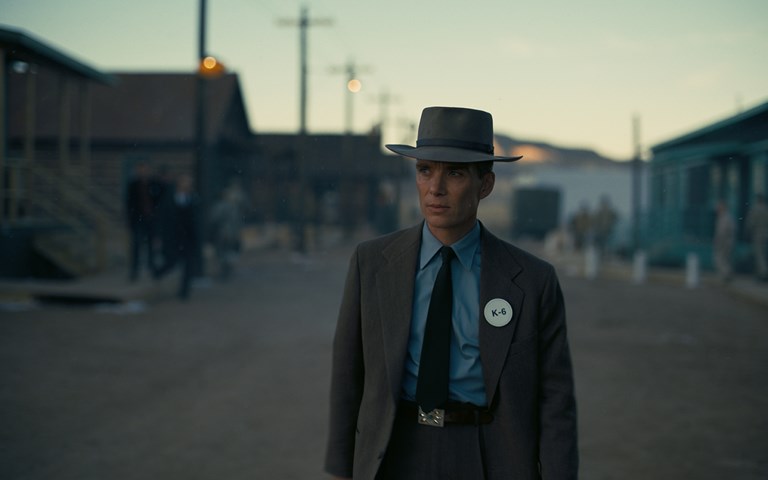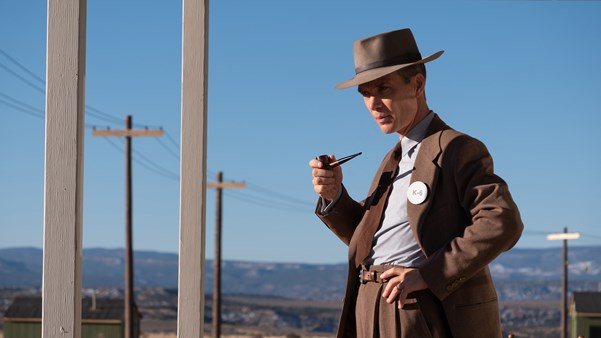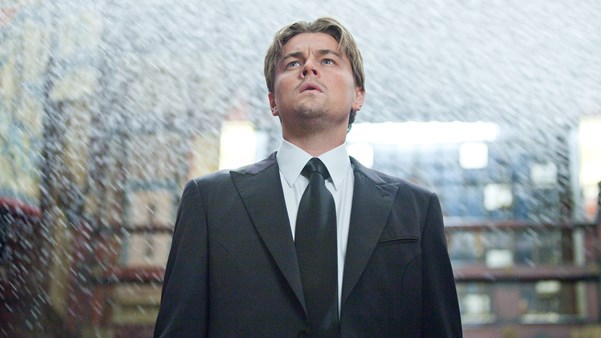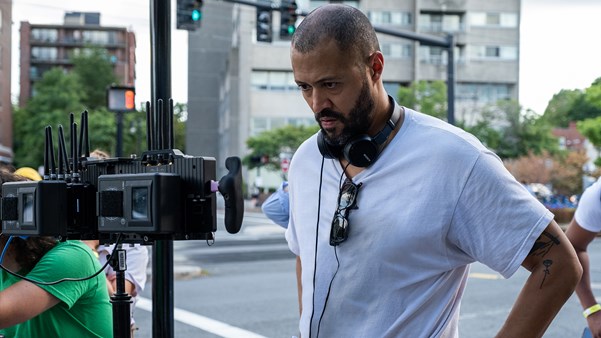Playing with time, holding viewers’ attention, summarising a life in three hours… these were just some of the challenges Oscar-winning editor Jennifer Lame faced when assembling Christopher Nolan’s gargantuan, years-spanning biopic. By Orla Smith

When editor Jennifer Lame first interviewed with Christopher Nolan to work on Tenet (2020), it didn’t occur to her that she might actually get the job. ‘I was just like, “I have to meet Chris Nolan because he’s Chris Nolan.”’ Until that point, Lame’s résumé was eclectic, if still in the realm of respected but low-key indies. She had collaborated with Noah Baumbach on films like Frances Ha (2012) and Marriage Story (2019), quietly devastated audiences with Manchester by the Sea (2016), and terrified them with Hereditary (2018). ‘Nolan liked that I had jumped around genres,’ Lame says of the interview that got her the job of a lifetime. ‘The whole thing was baffling to me for a while. It was lifechanging.’ After the time-bending headtrip of Tenet, Lame returned to work with Nolan on Oppenheimer, one of the year’s biggest films and arguably her most complicated edit to date.
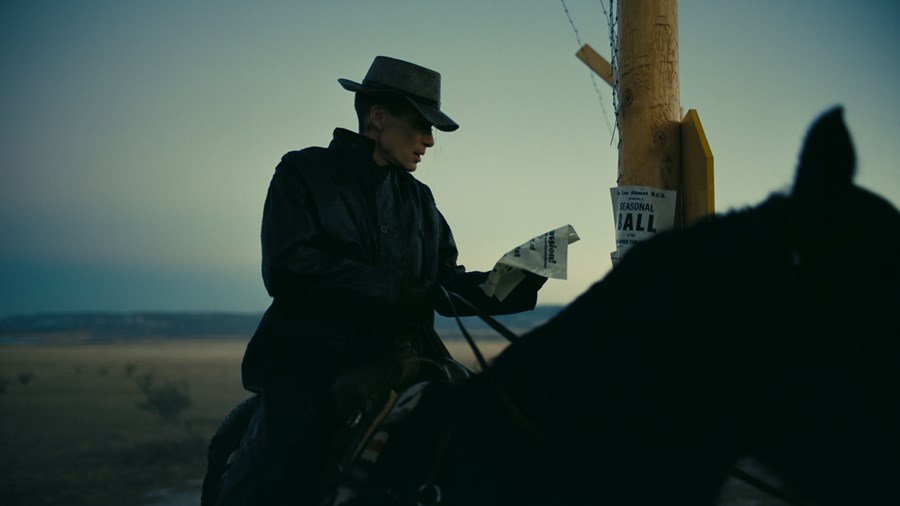
Oppenheimer (2023)
ORLA SMITH HOW DID YOU CONCEPTUALISE THE AUDIENCE’S EXPERIENCE OF TIME IN OPPENHEIMER?
JENNIFER LAME: When I did Manchester, I watched a lot of films that play
with time. It can be a cheesy device, and one that people use casually, just to
get something done. With Oppenheimer, Chris and I want to treat the audience
with the utmost respect. You don’t want them to feel like you’re using something frivolously that doesn’t have any meaning. They’ll stop caring. I learned that with Manchester very quickly: every time we switch timelines, it has to be incredibly emotional.
Oppenheimer is this whole person’s life in three hours, which seems long, but it’s actually not at all. Seeing Oppenheimer at many different ages in the first 10 minutes made me feel really emotional. It’s so upsetting to see him as this young, insecure, scared guy at university, and then 10 minutes later, as this older man who’s kind of a dick. How did this person come to be? Finding a way to keep the audience wanting the answers to those questions is so important in terms of holding their attention.
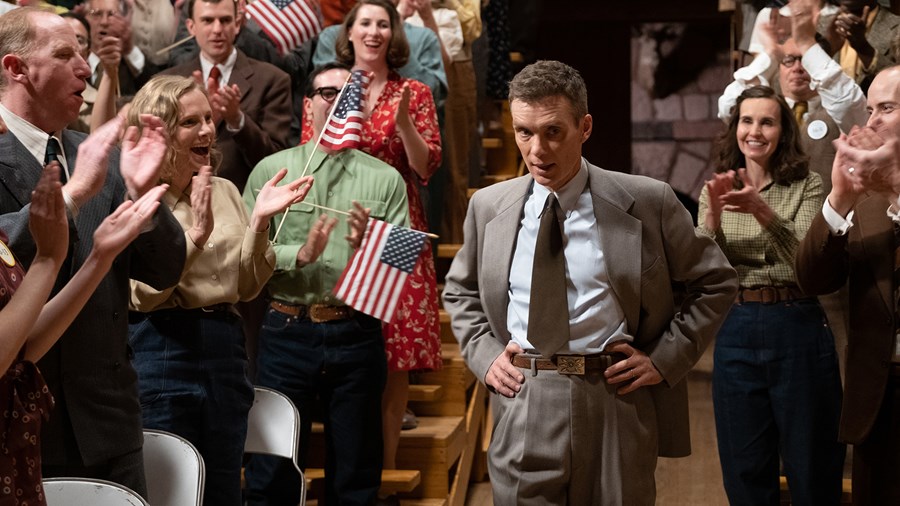
Oppenheimer (2023)
OS: HOW DID YOU INCORPORATE LUDWIG GÖRANSSON’S SCORE INTO THE EDIT?
JL: I do my assembly without music, which I love. You have to own your choices. Then, when Chris joined me, he let me listen to some of the temp stuff that Ludwig had experimented with. We started laying down Ludwig’s music and playing with it. It’s a testament to Ludwig that this movie has wall-to-wall music, yet it’s not annoying. It makes you feel even more enmeshed in the character. The music feels so inside Oppenheimer’s head. One of my friends saw the film and asked, ‘How did they make it sound like the universe?’
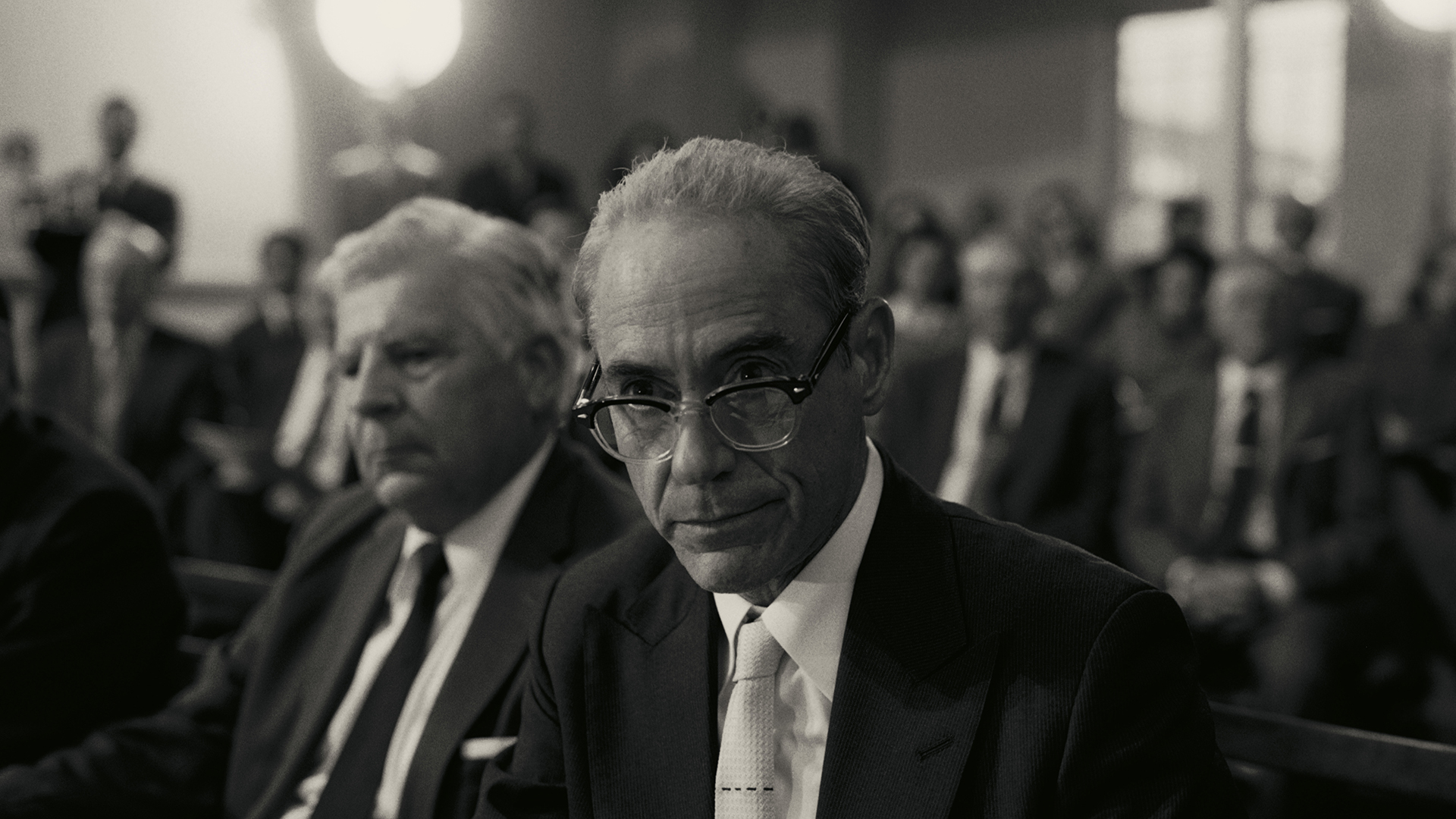
OS: HOW MUCH OF A CHALLENGE WAS IT TO ENSURE EVERY CHARACTER IN THE LARGE CAST WAS MEMORABLE?
JL: We would do passes of the film tailored to each character. We might do a couple of characters at a time. For instance, one day we would do a Serber
[Michael Angarano] pass, or a pass where we make sure everyone knows who Kistiakowsky [Trond Fausa] is. No one needs to know their names, we just need to make sure that they remember their faces.
One really emotional thing about the film is that these guys were all so young and they were just scientists. It felt like some of them didn’t really understand
what they were doing until it was too late. For them, it was like, ‘Oh my god, we can experiment with all this technology!’ The look on their faces when the bomb has dropped is devastating. In order for that to achieve the desired effect, you need to remember their faces when they were smiling and happy and having these breakthroughs.
When the bomb goes off, you almost want the audience to feel excited for them: your experiment worked, yay! You forget about the next half of the movie. As it unfolds, you – like them – are seeing the army take those bombs away and that’s when the reality of the situation hits home. I love that shift in the film.
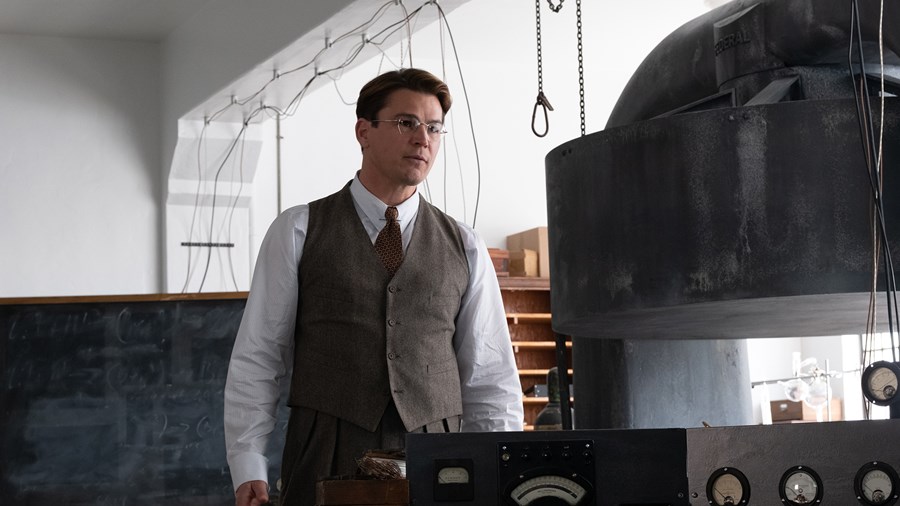
Oppenheimer (2023)
OS: WHICH SCENE DID YOU MOST ENJOY CUTTING?
JL: I loved the scene with Casey Affleck and Cillian Murphy. You’re watching Cillian act nervous for the first time. This person who’s so competent, so cocky, always relaxed, gets into this situation where he isn’t good at playing this game and he turns into a bumbling idiot. The Truman scene is another one where Cillian shows us an emotional side of Oppenheimer we haven’t seen. I could have cut that scene all day and night.
Chris has a way of keeping everything under control and ensuring deadlines are met while also making the process feel incredibly creative. There are no rules. If you came up with some crazy idea, he would go for it. It doesn’t feel stressful. The creative flow on his films is really exciting.
